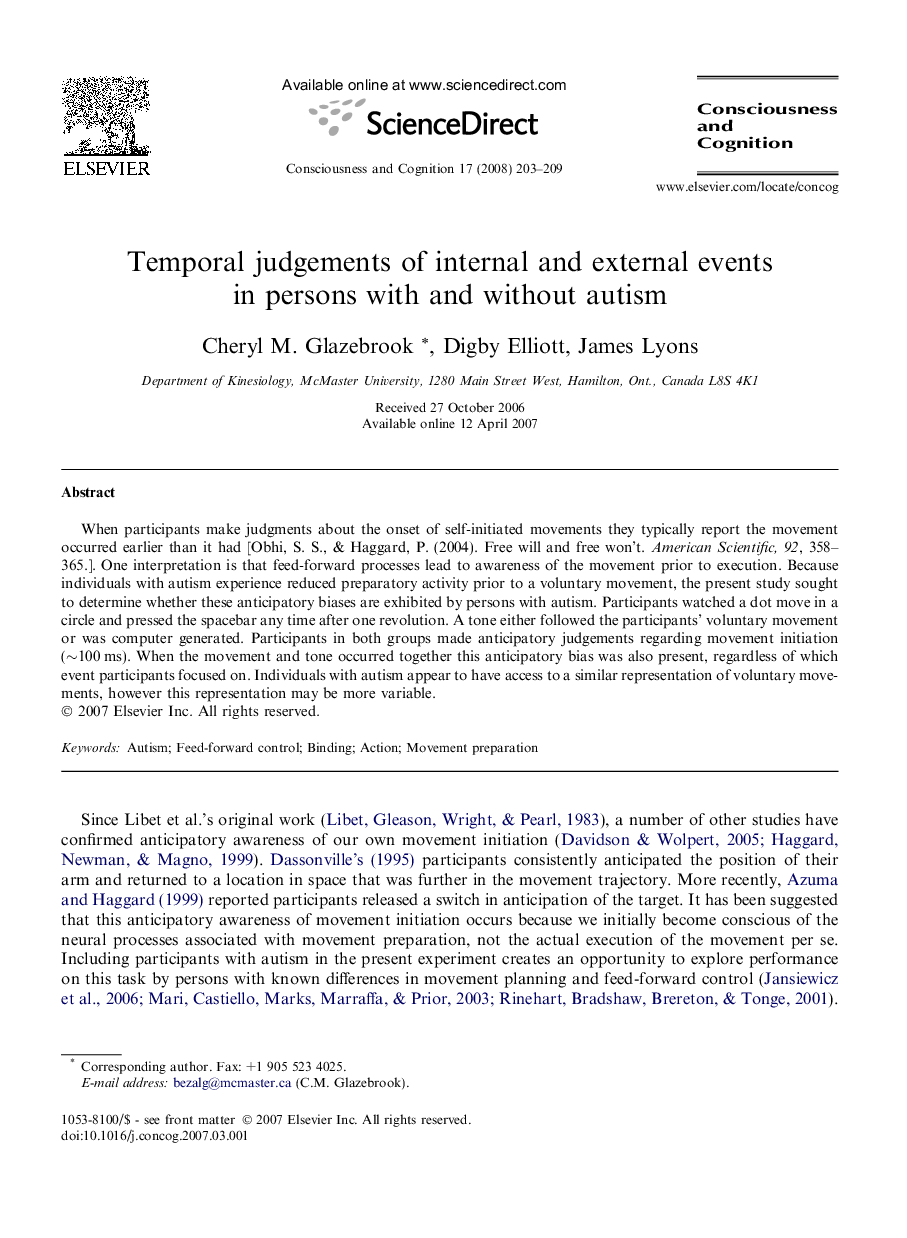| Article ID | Journal | Published Year | Pages | File Type |
|---|---|---|---|---|
| 928095 | Consciousness and Cognition | 2008 | 7 Pages |
When participants make judgments about the onset of self-initiated movements they typically report the movement occurred earlier than it had [Obhi, S. S., & Haggard, P. (2004). Free will and free won’t. American Scientific, 92, 358–365.]. One interpretation is that feed-forward processes lead to awareness of the movement prior to execution. Because individuals with autism experience reduced preparatory activity prior to a voluntary movement, the present study sought to determine whether these anticipatory biases are exhibited by persons with autism. Participants watched a dot move in a circle and pressed the spacebar any time after one revolution. A tone either followed the participants’ voluntary movement or was computer generated. Participants in both groups made anticipatory judgements regarding movement initiation (∼100 ms). When the movement and tone occurred together this anticipatory bias was also present, regardless of which event participants focused on. Individuals with autism appear to have access to a similar representation of voluntary movements, however this representation may be more variable.
